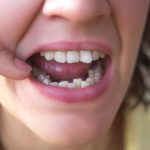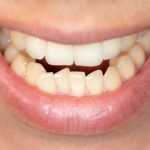Periodontal Disease: How Long Can Your Teeth Last? Expert Insights

Periodontal disease is a prevalent oral health problem that affects millions of people worldwide. It is a condition that results from the inflammation of the gums and the supporting tissues around the teeth, leading to tooth loss if left untreated. According to recent statistics, periodontal disease affects up to 50% of adults over the age of 30 and is the leading cause of tooth loss in adults. While periodontal disease can be prevented and treated, many people are unaware of the condition and its potential consequences. Hence, it is essential to understand the causes, symptoms, and treatment options for periodontal disease to maintain good oral health and preserve your teeth. In this article, we will explore periodontal disease in-depth and provide expert insights on how long your teeth can last if you suffer from this condition. We will discuss the various stages of periodontal disease, its causes and risk factors, and the importance of early detection and treatment. Additionally, we will delve into the different treatment options available for periodontal disease, ranging from non-surgical approaches such as scaling and root planing to surgical procedures like gum grafts and bone regeneration. By the end of this article, you will have a comprehensive understanding of periodontal disease and the steps you can take to maintain healthy teeth and gums.
What is Periodontal Disease?
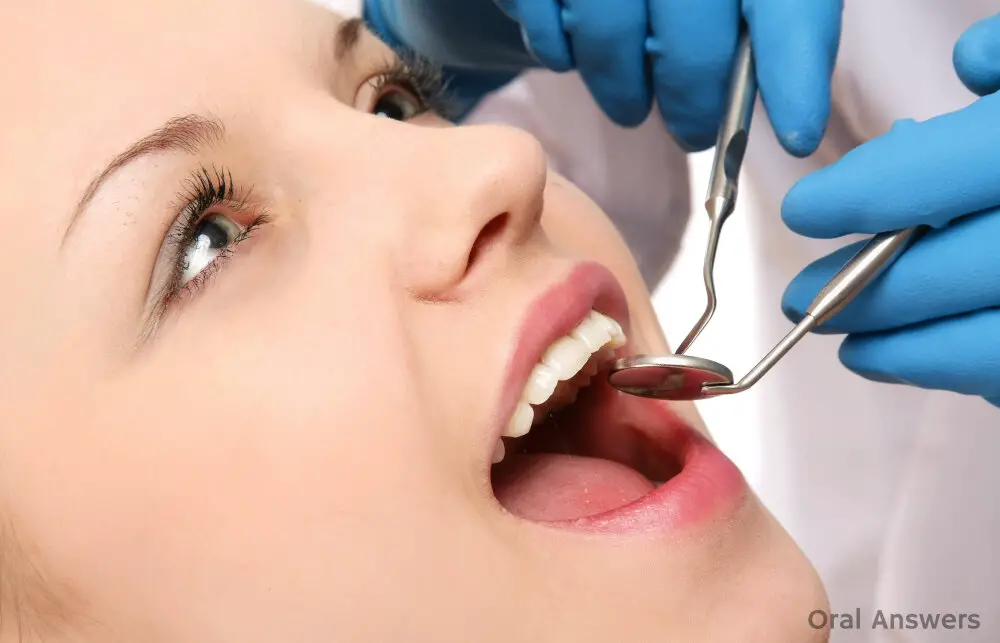
Periodontal disease, also known as gum disease, is a chronic inflammatory condition that affects the gums and supporting structures of the teeth. It is caused by the accumulation of plaque and bacteria on the teeth, which can lead to inflammation and infection of the gums. The early stage of periodontal disease is called gingivitis, which causes redness, swelling, and bleeding of the gums. If left untreated, gingivitis can progress to periodontitis, which can result in the loss of bone and tissue that support the teeth. Ultimately, periodontal disease can lead to tooth loss if not properly managed. Periodontal disease is a common condition, affecting nearly half of all adults over the age of 30 in the United States. It is often painless in its early stages, which is why it is important to maintain regular dental check-ups and cleanings. Risk factors for periodontal disease include smoking, diabetes, poor oral hygiene, and genetics. Symptoms of periodontal disease include bleeding gums, receding gums, bad breath, and loose teeth. Treatment for periodontal disease may include scaling and root planing, antibiotics, and in severe cases, surgery. Proper oral hygiene, including brushing twice a day and flossing daily, can help prevent periodontal disease and maintain healthy teeth and gums.
Periodontal disease, also known as gum disease, is a chronic bacterial infection that affects the tissues and structures that support teeth, such as gums, bone, and ligaments. It is caused by the accumulation of plaque and tartar on teeth, which contain harmful bacteria that release toxins and trigger an inflammatory response. Over time, this can lead to gum recession, bone loss, and ultimately tooth loss. Periodontal disease is a common and preventable condition that can be managed with good oral hygiene habits, regular dental check-ups, and timely treatment. Failure to address periodontal disease can have serious consequences for oral and overall health, including an increased risk of heart disease, stroke, and diabetes.
Periodontal disease, also known as gum disease, is caused by a buildup of bacteria and plaque on the teeth and gums. Poor oral hygiene and a lack of regular dental cleanings are the main risk factors for developing this disease. Additionally, smoking, genetics, and certain health conditions such as diabetes can also increase the likelihood of developing periodontal disease. As the disease progresses, it can cause the gums to recede, teeth to loosen, and even result in tooth loss. Therefore, maintaining good oral hygiene habits and visiting the dentist regularly are crucial to prevent the development and progression of periodontal disease.
Periodontal disease is a serious oral health condition that affects the gums, bone, and other supporting tissues that hold your teeth in place. Symptoms of periodontal disease may include red, swollen, or bleeding gums, bad breath, loose teeth, and changes in your bite. If you notice any of these symptoms, it is important to see a dental professional who can diagnose and treat the condition. Diagnosis of periodontal disease typically involves a comprehensive dental exam, including a periodontal probe to measure the space between your teeth and gums, X-rays to check for bone loss, and other diagnostic tests as needed. Early detection and treatment can help prevent further damage and potentially save your teeth.
How Does Periodontal Disease Affect Your Teeth?
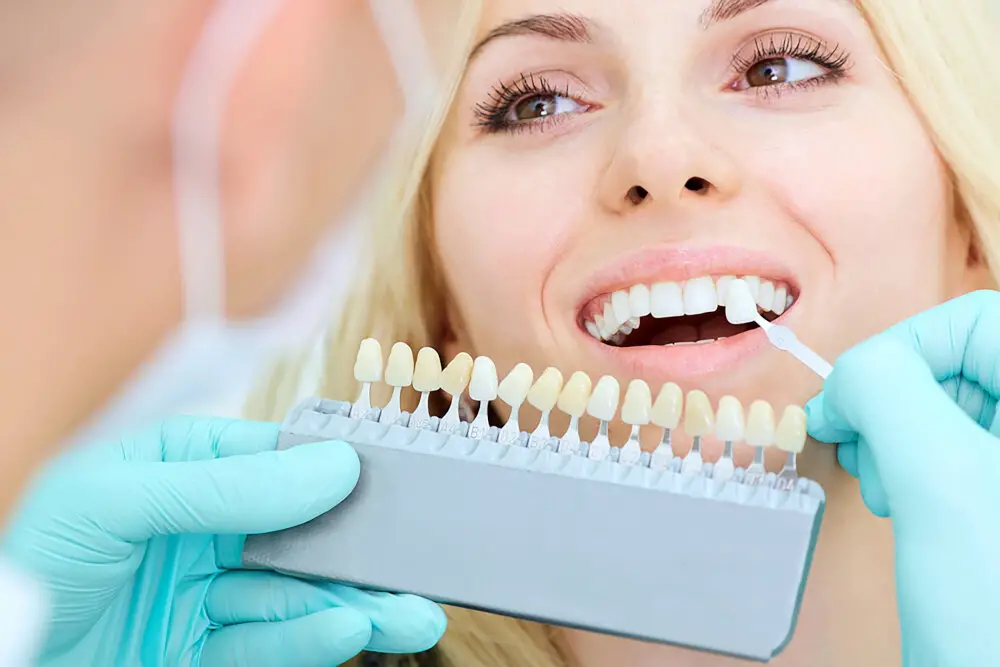
Periodontal disease can have a significant impact on the health of your teeth over time. This condition, which is also known as gum disease, is caused by bacterial growth in the mouth that leads to inflammation and damage to the gums and other structures that support your teeth. As the disease progresses, it can cause your gums to pull away from your teeth, creating pockets where bacteria can accumulate and cause more damage. This can ultimately lead to tooth loss, as the structures that support your teeth become weaker and less able to hold them in place. In addition to the risk of tooth loss, periodontal disease can also lead to other oral health problems. For example, the bacteria that cause gum disease can enter the bloodstream and travel to other parts of the body, potentially leading to systemic health issues like heart disease or stroke. Additionally, the inflammation caused by gum disease can make it more difficult to manage conditions like diabetes, as it can affect blood sugar levels. Overall, taking steps to prevent and treat periodontal disease is crucial for maintaining good oral health and reducing the risk of more serious health issues down the line.
Periodontal disease is a severe gum infection that affects the soft tissues and bone supporting the teeth. The disease starts with the accumulation of plaque on the teeth, which hardens into tartar, causing the gums to recede and create pockets between the teeth and gums. Over time, these pockets become deeper and more infected, resulting in tooth loss and bone damage. Periodontal disease can also lead to bad breath, bleeding gums, and painful chewing. If left untreated, it can have a significant impact on the longevity of your teeth, causing them to become loose or even fall out. Therefore, it is crucial to maintain good oral hygiene and schedule regular dental check-ups to prevent and treat periodontal disease.
Periodontal disease is a severe infection that affects the gums and bone that supports the teeth. If left untreated, it can lead to tooth loss. The disease usually starts as gingivitis, which is the inflammation of the gums. If not treated, it can progress to periodontitis, which can cause the gums to pull away from the teeth, forming pockets that become infected. The bacteria and toxins produced by the infection can break down the bone and connective tissue that hold the teeth in place, causing them to become loose and eventually fall out. Other factors that can contribute to tooth loss include smoking, poor oral hygiene, genetics, and certain medical conditions. With proper care and treatment, the progression of periodontal disease can be slowed down, and tooth loss can be prevented.
Periodontal disease not only affects the teeth and gums, but it can also lead to various complications affecting overall health. One of the most severe complications of periodontal disease is tooth loss, which can negatively impact a person’s ability to eat and speak properly. Additionally, periodontal disease has been linked to an increased risk of cardiovascular disease, stroke, and diabetes. It can also lead to bone loss in the jaw, which can cause further dental problems. Furthermore, pregnant women with periodontal disease may have an increased risk of preterm birth and low birth weight. Therefore, it is essential to maintain good oral hygiene habits and seek professional dental care to prevent and manage periodontal disease and its associated complications.
Can Periodontal Disease be Treated?
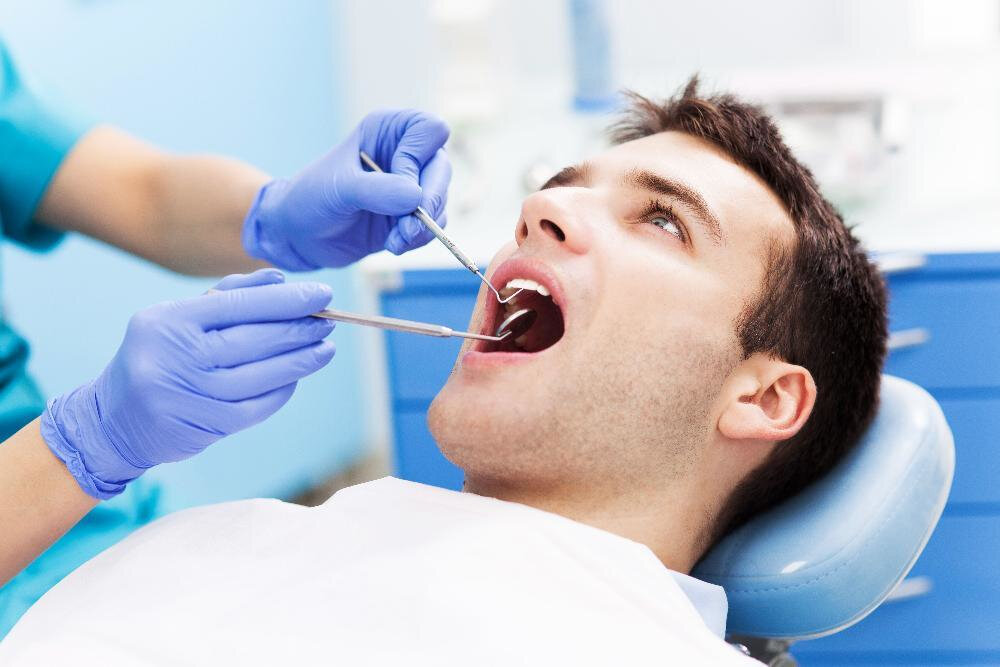
Periodontal disease is a common dental issue that affects millions of people globally. The disease is characterized by the inflammation of the gum tissue, which can lead to the destruction of the bone that supports the teeth. If left untreated, periodontal disease can cause tooth loss and other serious health problems. Fortunately, periodontal disease can be treated, and it is essential to seek treatment as soon as possible to prevent further damage. The treatment of periodontal disease depends on the severity of the condition. In the early stages, the disease can be treated with proper oral hygiene practices such as brushing and flossing regularly. However, in more advanced cases, a deep cleaning procedure called scaling and root planing may be necessary. This procedure involves removing the plaque and tartar buildup from the roots of the teeth and smoothing out the root surfaces to prevent further bacterial growth. In severe cases, surgery may be required to remove the damaged tissue and repair the damage caused by the disease. With proper treatment, patients can manage their periodontal disease and prevent tooth loss, ensuring that their teeth can last for a lifetime.
Periodontal disease is a serious dental condition that can lead to tooth loss if left untreated. Fortunately, there are several treatment options available to combat this disease. Non-surgical options include scaling and root planing, which removes plaque and tartar buildup from the teeth and gums. Antibiotics and antimicrobial mouthwashes may also be prescribed to kill bacteria and prevent further infection. In more severe cases, surgical options such as flap surgery or bone and tissue grafts may be necessary to repair damage to the gums and bones that support the teeth. It is important to seek treatment as soon as possible to prevent further damage and preserve the health of your teeth and gums.
Early diagnosis and treatment are crucial when it comes to periodontal disease, as it can help prevent further damage and potentially save a patient’s teeth. Periodontal disease is a chronic condition that can cause inflammation and damage to the gums, bones, and surrounding tissues. If left untreated, it can lead to tooth loss and other oral health issues. Early diagnosis can allow for more conservative treatment options, such as scaling and root planing, to effectively remove the bacteria and plaque buildup. By seeking treatment early, patients can not only preserve their oral health but also maintain their overall well-being. Therefore, it is necessary to visit a dentist regularly to detect the signs of periodontal disease early and receive timely treatment.
Periodontal disease is a serious condition that affects the gums, bone, and other supporting structures of the teeth. Fortunately, there are several ways to prevent this disease from occurring. First, it is essential to maintain good oral hygiene by brushing twice a day, flossing daily, and using mouthwash. Additionally, it is crucial to visit a dentist regularly for checkups and cleanings. A balanced diet, avoiding tobacco products, and managing stress can also contribute to preventing periodontal disease. Lastly, early detection and treatment of any dental issues can help prevent the progression of periodontal disease. By following these tips, you can help ensure the long-term health of your teeth and gums.
Expert Insights on Maintaining Healthy Teeth and Gums
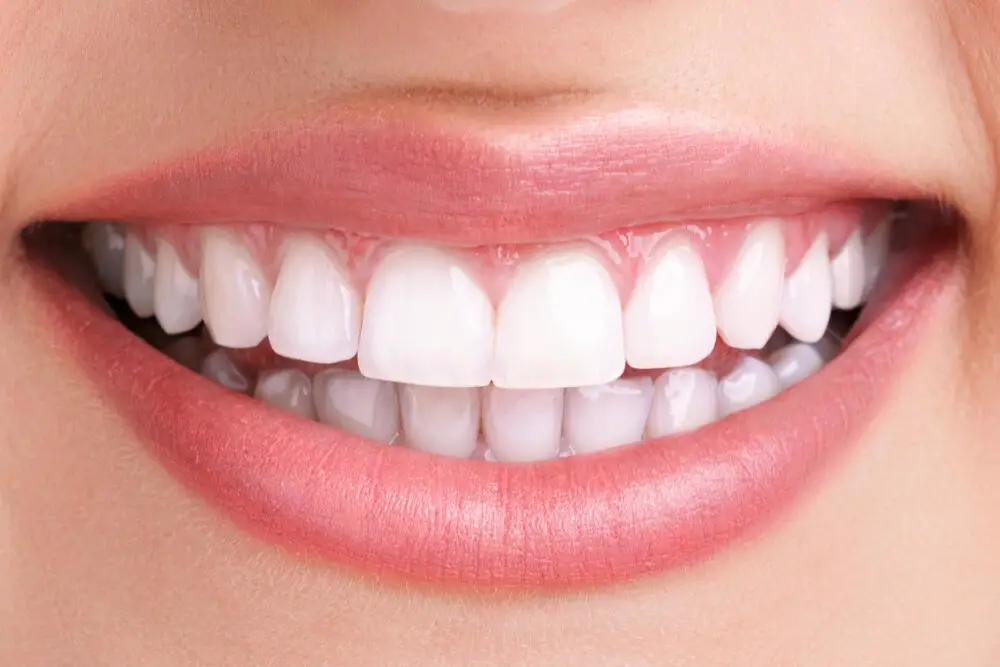
The key to maintaining healthy teeth and gums is through consistent and proper oral hygiene practices. Brushing your teeth twice a day with fluoride toothpaste and flossing daily helps to remove plaque and prevent the buildup of harmful bacteria in your mouth. Additionally, incorporating mouthwash into your oral hygiene routine can help to kill bacteria and freshen breath. Regular dental checkups and cleanings are also crucial to maintaining healthy teeth and gums. Your dentist can identify any potential issues before they become more serious and provide guidance on proper oral hygiene practices. It is also important to be mindful of your diet and limit sugary and acidic foods and drinks, as they can contribute to tooth decay and erosion of the enamel. Periodontal disease, also known as gum disease, can have serious consequences if left untreated. It is caused by the buildup of plaque and bacteria in the gums, which can lead to inflammation, bleeding, and even tooth loss. Maintaining healthy teeth and gums is essential in preventing periodontal disease. Regular brushing and flossing, along with a balanced diet and regular dental checkups, can help to prevent the buildup of plaque and bacteria in the gums. If you do develop periodontal disease, it is important to seek treatment from a dental professional as soon as possible. Treatment options range from non-surgical procedures, such as scaling and root planing, to more invasive surgical procedures, such as gum grafts and bone regeneration. With proper treatment and ongoing maintenance, you can prevent further damage and maintain healthy teeth and gums for years to come.
In an interview with a periodontist, we gained valuable insights into best practices for oral hygiene. The periodontist emphasized the importance of daily brushing and flossing to prevent periodontal disease, which can lead to tooth loss and other health issues. They also recommended regular dental check-ups and professional cleanings to maintain optimal oral health. Additionally, the periodontist advised against smoking and excessive alcohol consumption, as both habits can increase the risk of periodontal disease. By following these best practices for oral hygiene, individuals can help ensure the longevity of their teeth and overall health.
Maintaining healthy teeth and gums is essential to prevent periodontal disease and keep your teeth healthy for a lifetime. The first step is to brush your teeth twice a day with a fluoride toothpaste and floss daily to remove plaque and food particles from between your teeth. A balanced diet rich in vitamins and minerals is also crucial for healthy teeth and gums. Avoid sugary and acidic foods and drinks that can erode tooth enamel and lead to cavities. Regular dental check-ups and cleanings every six months can help detect and prevent dental problems before they become severe. Finally, avoid smoking and limit alcohol consumption to maintain healthy teeth and gums. By following these tips, you can keep your teeth healthy and beautiful for a long time.
Regular dental checkups play a crucial role in preventing periodontal disease, which is a serious gum infection that can ultimately lead to tooth loss. These checkups allow dental professionals to identify and address any oral health concerns before they escalate into more severe conditions. During a checkup, the dentist can assess the health of the gums and teeth, check for any signs of periodontal disease, and provide a thorough cleaning to remove any plaque buildup. Additionally, routine checkups provide an opportunity for patients to learn proper oral care techniques and receive personalized recommendations to maintain optimal oral health. By prioritizing regular dental checkups, individuals can take proactive measures to prevent periodontal disease and maintain healthy teeth and gums for years to come.
Periodontal disease is a serious condition that affects the gums and teeth. It is caused by a buildup of plaque and bacteria that can lead to inflammation, bleeding, and tooth loss. While the severity of the disease can vary, it is important to address it as soon as possible to prevent further damage. Regular dental checkups and cleanings can help to identify and treat the disease early on. Other important steps in maintaining healthy teeth and gums include proper brushing and flossing techniques, a healthy diet, and avoiding smoking or tobacco use. By taking these proactive measures, individuals can help to ensure that their teeth last for a lifetime.
Maintaining good oral health is crucial for the longevity of your teeth. Neglecting your dental hygiene can lead to periodontal disease, which is a serious gum infection that can cause tooth loss and even impact your overall health. Brushing twice a day, flossing regularly, and going for dental check-ups are essential for preventing periodontal disease. Additionally, a balanced diet and avoiding tobacco products can help improve your oral health. By taking care of your teeth and gums, you can enjoy a healthy, beautiful smile for years to come.
Periodontal disease is a serious condition that can have a significant impact on the longevity of your teeth. While it is often treatable, it is important to catch it early and take steps to prevent it from recurring. This may involve regular dental checkups, good oral hygiene habits, and lifestyle changes such as quitting smoking. In some cases, more aggressive treatments such as surgery may be necessary to save teeth that have been severely damaged by periodontal disease. Ultimately, taking care of your teeth and gums can help you enjoy a healthy, beautiful smile for years to come.
Conclusion

In conclusion, periodontal disease is a serious condition that can have long-lasting effects on the health of your teeth. While it is possible to treat and manage the disease, prevention is key. Practicing good oral hygiene habits, such as brushing and flossing regularly, can help prevent the onset of periodontal disease. Additionally, visiting your dentist for regular check-ups and cleanings can help catch any early signs of the disease and prevent further damage. Ultimately, the longevity of your teeth depends on your commitment to maintaining good oral health and seeking professional care when needed. With the right care and attention, your teeth can last a lifetime.



